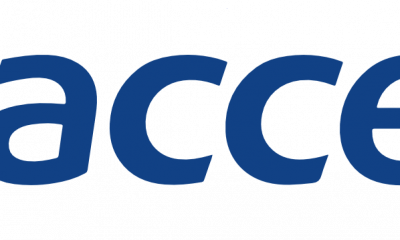Business
List Of Top Five High Earners As Nigerian Banks Record Lower E-business Income
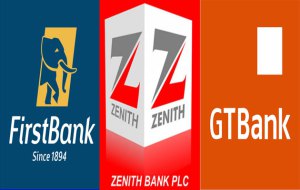
Interestingly, the tier-1 banks popularly known as the FUGAZ (First Bank, UBA, Access Bank, GT Bank, and Zenith Bank) topped the list of banks with the highest e-business earnings in the first half of 2020.
Data from their half-year 2020 financials show that the FUGAZ generated a sum of N67.3 billion from electronic business, a drop of 14.2% compared to N78.4 billion recorded in the corresponding period of 2019.
The recent decline could be attributed to the disruption caused by the COVID-19 pandemic and a CBN policy that implemented a downward review of bank charges for various transactions. This is the first decline since we started tracking as earnings from e-business has consistently witnessed an increase over the years.
Data obtained from Nairametrics Research shows that the tier-1 banks generated a sum of N32.3 billion e-business earnings in the second half of 2017, N45.1 billion (2018), and N78.4 billion (2019) respectively before the decline in H1 2020.
GT Bank – Fifth Position
The most capitalized bank in the stock market generated a sum of N4.8 billion from their electronic businesses to stand in fifth behind Zenith Bank. GT Bank e-business revenue declined by 32.2% from N7.14 billion generated in H1 2019 to N4.8 billion in H1 2020. Its e-business revenue accounted for 2.1% of its total revenue (N225.1 billion) generated within the period.

Zenith Bank – Fourth Position
Zenith Bank generated a total of N8.94 billion from e-business income in H1 2020, a 67.01% decline from N27.1 billion generated in the same period of 2019. Its e-business revenue accounted for 2.6% of the total revenue generated during the period. It should be noted that when compared to other banks, it posted the highest profit after tax of N103.8 billion during the period under review.
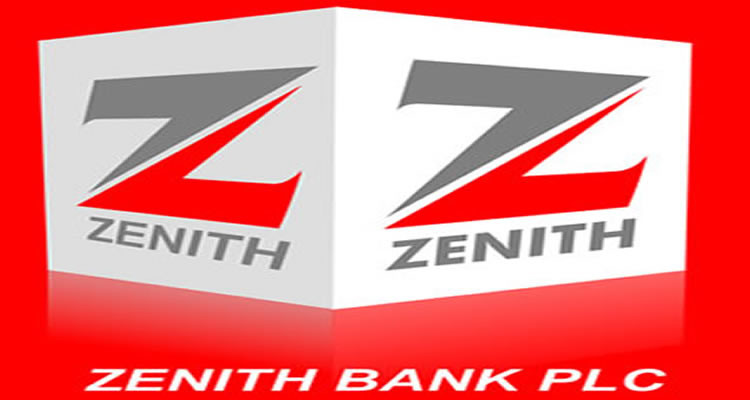
Access Bank – Third Position
The largest bank in Nigeria by total assets doubled its e-business revenue from N5.5 billion recorded in H1 2019 to N13.9 billion in 2020. Access Bank recorded the highest year-on-year growth in e-business income as its N13.91 billion was 151.3% higher than the corresponding 2019 earnings. E-business revenue generated by the bank includes fees and commissions from online purchases and bills payments.
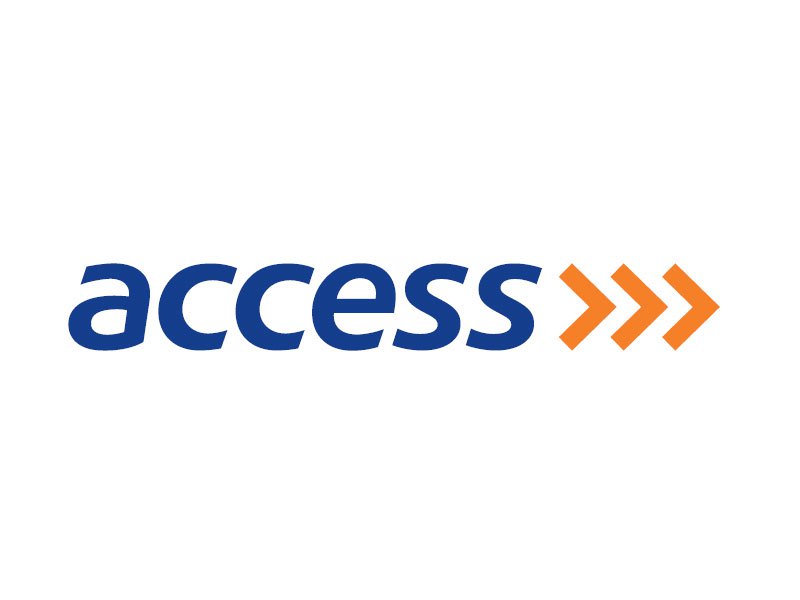
UBA – Second Position
With a total e-business income of N17.93 billion, UBA moves to second place. The multinational grew its E-business revenue by 6.35% from N16.86 billion generated in the first half of 2019. E-business revenue accounted for 6% of the total revenue generated during the period (N300.6 billion).
Apart from the UBA Mobile Banking app, the banking giant boasts of a number of electronic products such as U-Pay which allows customers to make payments at the click of a button in countries where UBA has a presence in Africa, U-Collect, on the other hand, is a consolidated internet payment gateway solution which integrates multiple payment solutions available in Nigeria such as VISA, Verve, Master Card and e-Tranzact.
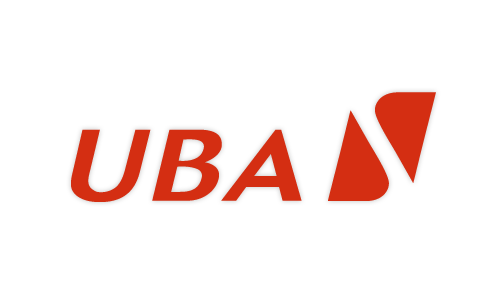
First Bank – First Position
First Bank toppled Zenith Bank to the first position, having earned N21.7 billion from e-business between January and June 2020, a marginal decrease of 0.53% compared N21.83 billion recorded in the corresponding period of 2019. Meanwhile, the bank’s e-business revenue had enjoyed consistent growth in the past years, growing by 40.8% between 2018 and 2017, and a 46.3% growth between 2019 and 2018.
Despite being one of the oldest banks in the country, First Bank has been at the forefront of the mobile banking revolution. The bank was one of the pioneers of the USSD platform which is used to transfer money via a text messaging application of a mobile phone.
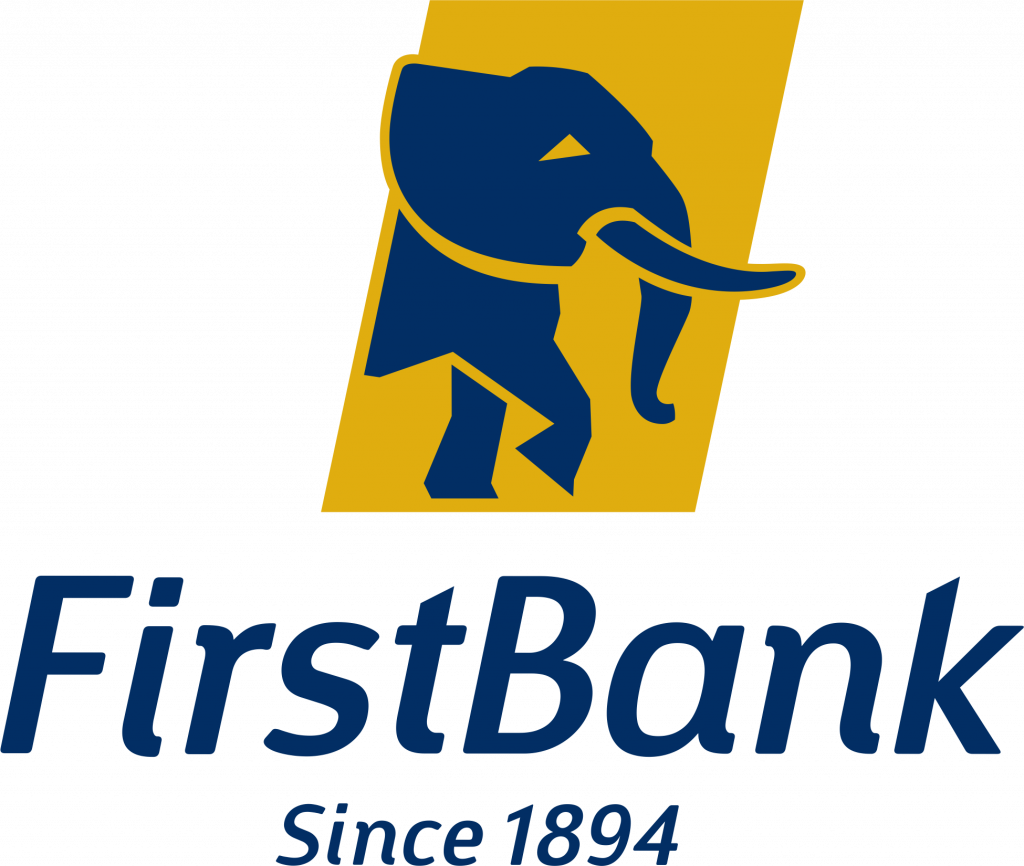
The bank also has two mobile banking apps, the FirstMobile which is like other banking apps, and FirstMonie which does not require its customers to have bank accounts to transfer money or make transactions. It also makes use of FirstBank mVisa, which allows consumers to pay for goods and services through FirstMobile by scanning a QR code or by dialing a USSD number. Other apps include; Qr Merchant and First Bank Paypal.
Stiff Fintech competition As earlier stated, the decline could also be attributed to the economic downturn witnessed in the country as a result of the COVID-19 pandemic and the new CBN mandated downward review of bank charges for various transactions.
Commercial banks also face stiff competition from startups are entering into the Fintech space to compete for market share with backing from venture capital and private equity firms. The influx of tech-oriented banks continues to pose a threat to revenue earned by the traditional banks from e-businesses.
Bank
Alpha Morgan to Host 19th Economic Review Webinar

Alpha Morgan to Host 19th Economic Review Webinar
In an economy shaped by constant shifts, the edge often belongs to those with the right information.
On Wednesday, February 25, 2026, Alpha Morgan Bank will host the 19th edition of its Economic Review Webinar, a high-level thought leadership session designed to equip businesses, investors, and individuals with timely financial and economic insight.
The session, which will hold live on Zoom at 10:00am WAT and will feature economist Bismarck Rewane, who will examine the key signals influencing Nigeria’s economic direction in 2026, including policy trends, market movements, and global developments shaping the local landscape.
With a consistent track record of delivering clarity in uncertain times, the Alpha Morgan Economic Review continues to provide practical context for decision-making in a dynamic environment.
Registration for the 19th Alpha Morgan Economic Review is free and can be completed via https://bit.ly/registeramerseries19
It is a bi-monthly platform that is open to the public and is held virtually.
Visit www.alphamorganbank to know more.
Business
GTBank Launches Quick Airtime Loan at 2.95%

GTBank Launches Quick Airtime Loan at 2.95%
Guaranty Trust Bank Ltd (GTBank), the flagship banking franchise of GTCO Plc, Africa’s leading financial services group, today announced the launch of Quick Airtime Loan, an innovative digital solution that gives customers instant access to airtime when they run out of call credit and have limited funds in their bank accounts, ensuring customers can stay connected when it matters most.
In today’s always-on world, running out of airtime is more than a minor inconvenience. It can mean missed opportunities, disrupted plans, and lost connections, often at the very moment when funds are tight, and options are limited. Quick Airtime Loan was created to solve this problem, offering customers instant access to airtime on credit, directly from their bank. With Quick Airtime Loan, eligible GTBank customers can access from ₦100 and up to ₦10,000 by dialing *737*90#. Available across all major mobile networks in Nigeria, the service will soon expand to include data loans, further strengthening its proposition as a reliable on-demand platform.
For years, the airtime credit market has been dominated by Telcos, where charges for this service are at 15%. GTBank is now changing the narrative by offering a customer-centric, bank-led digital alternative priced at 2.95%. Built on transparency, convenience and affordability, Quick Airtime Loan has the potential to broaden access to airtime, deliver meaningful cost savings for millions of Nigerians, and redefine how financial services show up in everyday life, not just in banking moments.
Commenting on the product launch, Miriam Olusanya, Managing Director of Guaranty Trust Bank Ltd, said: “Quick Airtime Loan reflects GTBank’s continued focus on delivering digital solutions that are relevant, accessible, and built around real customer needs. The solution underscores the power of a connected financial ecosystem, combining GTBank’s digital reach and lending expertise with the capabilities of HabariPay to deliver a smooth, end-to-end experience. By leveraging unique strengths across the Group, we are able to accelerate innovation, strengthen execution, and deliver a more integrated customer experience across all our service channels.”
Importantly, Quick Airtime Loan highlights GTCO’s evolution as a fully diversified financial services group. Leveraging HabariPay’s Squad, the solution reinforces the Group’s ecosystem proposition by bringing together banking, payment technology, and digital channels to deliver intuitive, one-stop experiences for customers.
With this new product launch, Guaranty Trust Bank is extending its legacy of pioneering digital-first solutions that have redefined customer access to financial services across the industry, building on the proven strength of its widely adopted QuickCredit offering and the convenience of the Bank’s iconic *737# USSD Banking platform.
About Guaranty Trust Bank
Guaranty Trust Bank (GTBank) is the flagship banking franchise of GTCO Plc, a leading financial services group with a strong presence across Africa and the United Kingdom. The Bank is widely recognized for its leadership in digital banking, customer experience, and innovative financial solutions that deliver value to individuals, businesses, and communities.
About HabariPay
HabariPay is the payments fintech subsidiary of GTCO Plc, focused on enabling fast, secure, and accessible digital payments for individuals and businesses. By integrating payments and digital technology, HabariPay supports innovative services that make everyday financial interactions simpler and more seamless.
Enquiries:
GTCO
Group Corporate Communication
[email protected]
+234-1-2715227
www.gtcoplc.com
Business
BUA Group, AD Ports Group and MAIR Group Launch Strategic Plan for World-Class Sugar and Agro-Logistics Hub at Khalifa Port

BUA Group, AD Ports Group and MAIR Group Sign MoU to Explore Collaboration in Sugar Refining, Agro-Industrial Development, and Integrated Global Logistics Solutions
Abu Dhabi, UAE – Monday, 16th February 2026
BUA Group, AD Ports Group, and MAIR Group of Abu Dhabi today signed a strategic Memorandum of Understanding (MoU) to explore collaboration in sugar refining, agro-industrial development, and integrated global logistics solutions. The partnership aims to create a world-class platform that strengthens regional food security, supports industrial diversification, and reinforces Abu Dhabi’s position as a hub for trade and manufacturing.
The proposed collaboration will leverage BUA Group’s industrial and logistics expertise, Khalifa Port’s world-class infrastructure, and AD Ports Group’s operational experience. The initiative aligns with the objectives of the UAE Food Security Strategy 2051, which seeks to position the UAE as a global leader in sustainable food production and resilient supply chains. It also aligns with Nigeria’s food production- and export-oriented agricultural transformation agenda, focused on scaling domestic capacity, strengthening value addition, improving post-harvest logistics, and unlocking new markets for Nigerian produce across the Middle East, Asia, and beyond.

Photo Caption: L-R: Kabiru Rabiu, Group Executive Director, BUA Group; Cpt. Mohammed J. Al Shamisi, MD/Group CEO, AD Ports Group; Saif Al Mazrouei, CEO (Ports Cluster) AD Ports Group; Abdul Samad Rabiu, Founder/Executive Chairman, BUA Group; and Steve Green, Group CFO, MAIR Group
Through structured aggregation, processing, storage, and maritime export channels, the partnership is designed to reduce supply chain inefficiencies, enhance traceability and quality standards, and also create a predictable trade corridor between West Africa and the Gulf.
BUA Group—recognised as one of Africa’s largest and most diversified conglomerates, with major investments across sugar refining, food production, flour milling, cement manufacturing, and infrastructure- brings extensive industrial expertise and large-scale operational capability to the venture. MAIR Group will provide strategic support in developing integrated logistics and agro-industrial solutions, creating a seamless platform for production, storage, and distribution.
Abdul Samad Rabiu, Founder and Chairman of BUA Group, said:
“This MoU marks an important milestone in BUA’s international expansion and reflects our long-term vision of building globally competitive industrial platforms. Together with AD Ports Group and MAIR Group, we aim to develop sustainable food production and logistics solutions that strengthen regional supply chains and support the UAE’s Food Security Strategy 2051.”
He further added that, “This partnership represents not just a commercial arrangement but a strategic food corridor anchored on shared economic ambition, resilient infrastructure, and disciplined execution, reinforcing long-term food security objectives for both nations.”
A representative of MAIR Group added:
“This collaboration underscores our commitment to advancing strategic industries in Abu Dhabi and building integrated solutions that reinforce the UAE’s position as a global hub for trade, food security, and industrial excellence.”
A spokesperson from AD Ports Group commented:
“Our partnership with BUA Group and MAIR Group highlights Khalifa Port’s role as a catalyst for high-impact industrial investments. This initiative will enhance regional food security, strengthen global trade connectivity, and support Abu Dhabi’s economic diversification goals.”
This MoU marks a historic collaboration that combines world-class infrastructure, industrial expertise, and strategic vision, setting the stage for a sustainable and resilient food and logistics ecosystem that will benefit the UAE, the region, and global markets alike.
-

 celebrity radar - gossips6 months ago
celebrity radar - gossips6 months agoWhy Babangida’s Hilltop Home Became Nigeria’s Political “Mecca”
-

 society6 months ago
society6 months agoPower is a Loan, Not a Possession: The Sacred Duty of Planting People
-

 society5 months ago
society5 months agoReligion: Africa’s Oldest Weapon of Enslavement and the Forgotten Truth
-

 news6 months ago
news6 months agoTHE APPOINTMENT OF WASIU AYINDE BY THE FEDERAL GOVERNMENT AS AN AMBASSADOR SOUNDS EMBARRASSING






